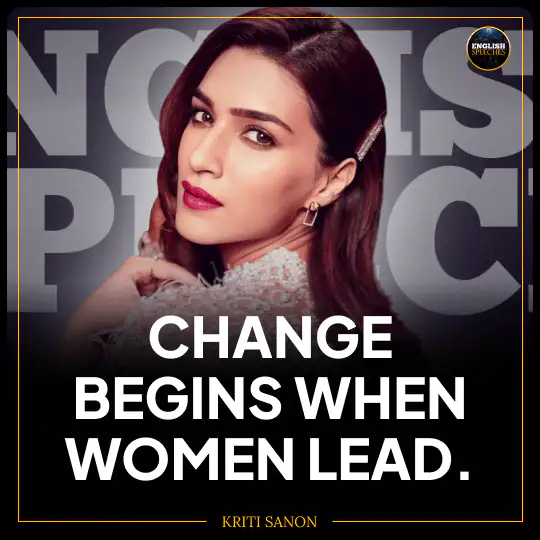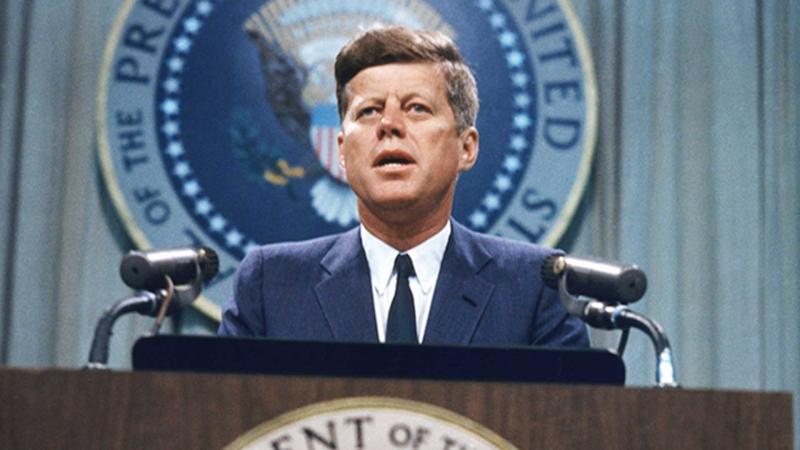Learn English with Kriti Sanon. At the 2025 World Health Summit in Berlin, UNFPA India’s Honorary Ambassador for Gender Equality, Kriti Sanon, delivers a moving speech about the global importance of women’s health. Through emotional stories and sharp insights, she explains why inclusion, investment, and innovation are essential to building a just and thriving world for everyone.
Who This Speech Is For
Learners interested in global health, gender equality, and women’s empowerment.
Those who want to explore persuasive speeches that mix storytelling with data.
Intermediate to advanced English learners studying real-world advocacy language.
How This Speech Helps Your English
Learn advanced vocabulary related to healthcare, inclusion, and innovation.
Understand how emotional storytelling strengthens factual and persuasive language.
Observe how rhetorical questions, repetition, and parallelism create impact.
Build listening and comprehension skills through authentic international discourse.
Why This Speech Matters
Shows how women’s health drives global progress and economic growth.
Reveals systemic biases in health research and why inclusion must be intentional.
Inspires learners to see how communication can lead to real social change.
Encourages reflection on moral, economic, and technological equality for all.

”Change begins when women lead.
Download available
for Plus Members
PDF Transcript
Access the full speech in an
easy-to-read PDF format.
Audio Version
Listen and download clear,
high-quality MP3 recordings.
English Lesson
Includes vocabulary
and grammar practice.
Offer ends in:
Offer ended.
Transcript
Madam Executive Director of UNFPA, Deanna Kheta, Excellencies, distinguished leaders, partners, and friends, good evening and a warm namaste.
It is a profound honor to stand before you at the World Health Summit among leaders, thinkers, and change makers, united by one shared conviction. Women’s health is not a side issue. It is the cornerstone of humanity’s progress, prosperity, and future.
As an actor and a newly turned producer in the Indian film industry, I’ve built my career telling stories. Stories that can make people laugh, cry, and sometimes see the world differently. Today, as UNFPA India’s honorary ambassador for gender equality, I want to tell a story that belongs to all of us, the story of women’s health.
Because behind every statistic is a life, a mother, a daughter, a sister, a leader whose potential is lost because health systems have failed her.
I was reminded of this so vividly at my conferment event in Mumbai as UNFPA India’s honorary ambassador, where I met young women, young girls from Beed, a district in Maharashtra. Their personal experiences shook me to my core.
These little girls were married off at the ages of 11, 12, 13, sometimes to men twice or even thrice their age. At 15, many of them had become mothers. Just imagine that. They endured immense suffering from abuse, discrimination, life-threatening health complications, and at the core of all of this, a complete loss of childhood.
Listening to them, I felt a deep sense of heartbreak, but also outrage. Outrage that in the 21st century, girls are still denied their basic rights, outraged that their bodies and their futures are decided already by someone else.
But what inspired me most was not just their resilience, but their transformation. With the right support, access to health care, safe spaces, and very importantly, education, they were thriving. Their dignity restored, their voices strong and their dreams alive.
But what struck me the most was how universal were their hopes. They wanted what every girl in every nation desires, to live safely, to decide freely, to dream boldly and to contribute meaningfully.
Their resilience mirrors the quiet revolutions happening across India, where child marriage has halved in the last two decades, with the most significant progress seen amongst the disadvantaged households. That’s great news, but the still numbers are high.
These stories of courage, change, and possibility also echo across continents, from rural villages in Africa to refugee camps in the Middle East, to underserved communities here in Europe. Women everywhere share these same aspirations and unfortunately face the same barriers.
I believe three key pillars are foundational to women’s empowerment. First being inclusion. We often say nothing about her without her. Yet too often decisions about women’s health are still made without women at the table.
Globally, women remain underrepresented in health research, in policy design, and in clinical trials. For too long, the default human body used to build medicine and health technologies has been, quite frankly, a man. And until the 1990s, women were routinely excluded from clinical trials, and drugs tested on men were prescribed to them without understanding their effects.
And this is not a small oversight. It is a systemic failure. As someone who has studied engineering, I see it like building technology without testing half the inputs. I mean, the result is going to be unstable and destined to fail. The same is true for health systems. When women are excluded, solutions fail to reflect their needs, their bodies, or their realities.
Women are 50% more likely than men to be misdiagnosed after a heart attack. Even outside health sector, in something as basic as car safety. Women are 47% more likely to be seriously injured and 17% more likely to die in car crashes.
For decades, crash test dummies were designed around the average man. Female dummies were introduced much later and often tested only on the passenger seat. Pregnant women face even greater risks, despite car crashes being the leading cause of fetal death from maternal trauma, 62% of third trimester pregnant women do not fit the standard seat belt design. Isn’t that sad?
I mean, this is a stark reminder that women’s realities, when they’re excluded, even the most basic protections can fail. This brings me back to my point. Inclusion is not optional, it’s fundamental. Women are not passive beneficiaries of healthcare, they are co-creators of it.
Hence, my second key pillar is investment. As Mr. Jean would agree, let’s talk about money, right? Investing in women’s health is not only the right thing to do morally, it is the smart thing to do economically and socially.
For every $300 million invested in women’s health, we get a return of $13 billion. Billion. Every dollar invested generates at least $9 back. And in India alone, every dollar invested in maternal health and family planning could yield $8.40 in benefits by 2050. By improved workforce participation, reduced health care costs, greater productivity.
Now, scale all of this globally, that’s not a statistic. It’s an economic revolution waiting to happen. And yet women’s health remains chronically underfunded, undervalued and underprioritized.
Think about what this means. Healthier women mean healthier children, healthier families, stronger families, more resilient communities, fewer mothers lost to preventable causes, girls completing their education, entering the workforce, contributing to innovations and demonstrating leadership the world desperately needs.
Investment in family planning and maternal health care alone could reduce maternal deaths by 75%. That is lives saved. That is futures transformed and potentials unleashed.
Every day, trillions flow through global markets. The most impactful investment of all gets neglected. This isn’t just economics. It’s values, in my opinion. Do we value women enough to put their health at the center? Or do we keep treating it as secondary and something to, you know, address later?
If you’re serious about progress, women’s health isn’t charity. It’s infrastructure. It is the foundation. Everything else is built on. And it’s time we invest like it.
Invest in the third pillar. That is innovation. We live in the era of extraordinary innovation, digital health, artificial intelligence, and new financing models. But innovation is only transformative when it’s inclusive.
In India, digital health initiatives have reached over 100 million women in rural areas, a number larger than the population of many countries. Yet despite these advances, women remain largely absent from the teams and companies designing the technologies that affect their lives.
Currently, only 15% of health tech companies are founded or cofounded by women. And not because women lack ideas. They don’t. Definitely they don’t. But because they are too often denied access to capital, networks and opportunities.
Ladies and gentlemen, we’re leaving brilliance on the table and imagine if digital health tools were designed with rural women in mind, or if AI systems were trained on women’s realities, if financing models channeled resources directly to women-led enterprises.
That’s why initiatives like… That’s why initiatives like UNFPAx Women Collective are so important. They connect innovators, investors, and advocates to create ecosystems where women-focused solutions can scale, where women are not an afterthought but the starting point.
Excellencies and my friends, women make up for half of humanity. They are caregivers, entrepreneurs, innovators, leaders. To neglect their health is not only unjust, it is self-defeating.
India has had 73% reduction in maternal mortality since 2000, which means one million more mothers are alive today, nurturing children and building communities. Now imagine if every nation did the same. The collective gains for health equality and global prosperity would be immense.
Imagine a world where every girl gets to make choices about her own body, where every woman, wherever she lives, has access to quality health care, where innovations are designed by women, for women, and with women, where investment in women’s health is not optional, but indispensable.
And this is not just a dream, this is well within our reach, but it requires courage, commitment, and action, now.
I am proud to stand with UNFPA, with all of you here at the World Health Summit, to make this vision a reality. Let us close this gap and reimagine global health through women.
Thank you.






